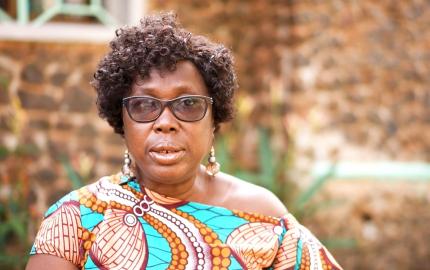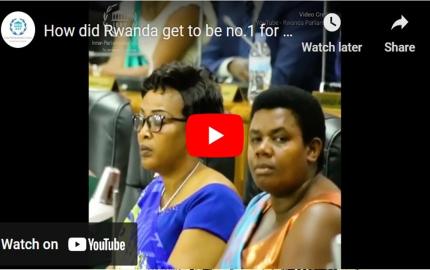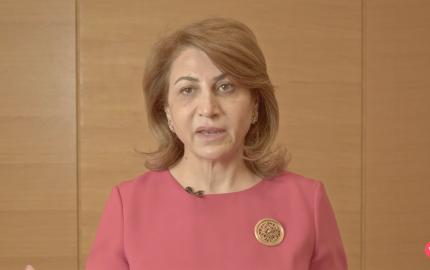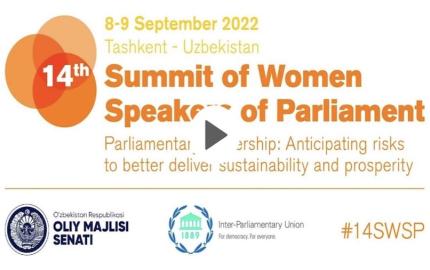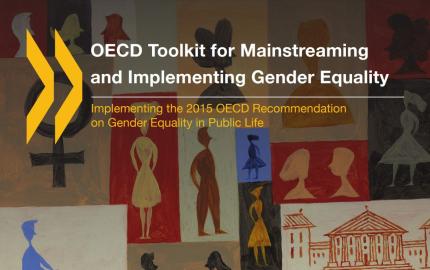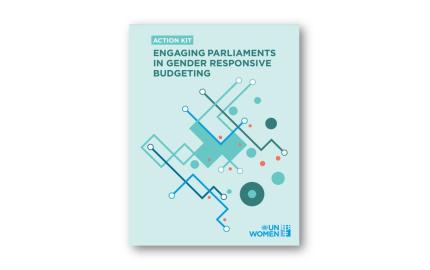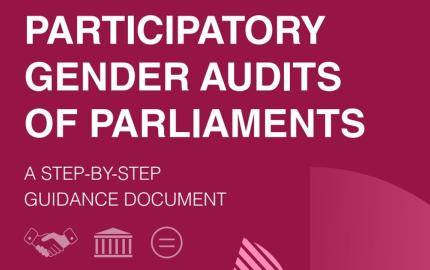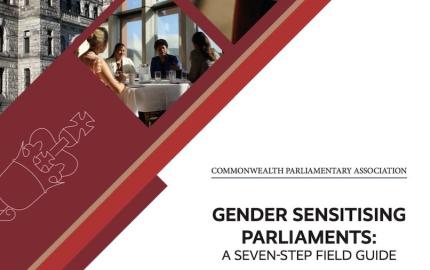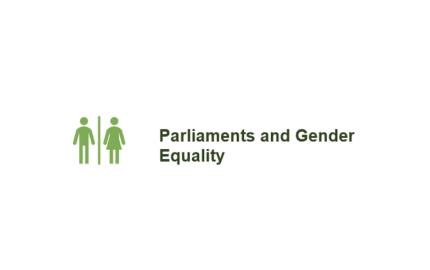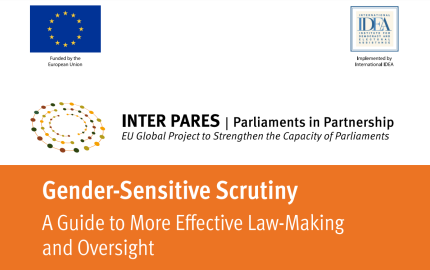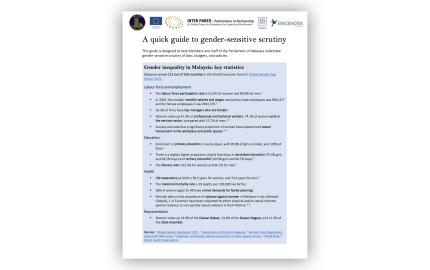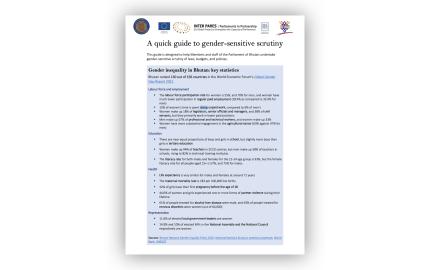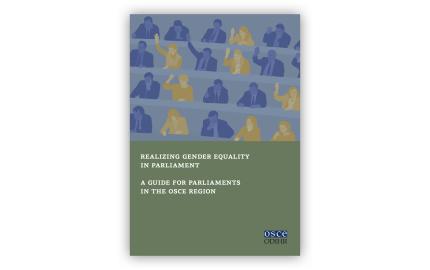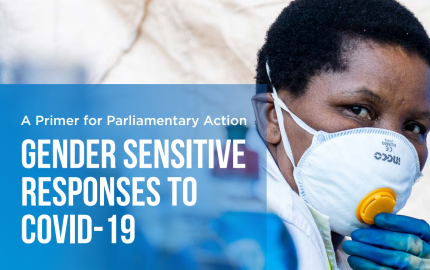Parliaments & Representatives
Main navigation
Hon Dr Bernadette Lahai is Agriculturist by profession. In the 2002 general elections, she was elected to the Sierra Leone House of Parliament under the Sierra Leone People’s Party. She won re-election in the 2007 and in the 2012 Parliamentary elections, with 69.15%. Dr. Bernadette Lahai was the Vice Presidency of Pan African Parliament and served as the minority leader in the Sierra Leone Parliament. She has been a key driver of the Parliamentary Alliances in the Pan-African and Sierra Leonean Parliaments. Now, she continues supporting parliamentary alliances by mentoring deputies.
Video provided by UN Women Sierra Leone.
When Liberal MP Julia Banks quit the Morrison government in 2018, her resignation was cited as an example of how hostile the political environment can be towards women.
But Banks’ story and her resignation happened to coincide with a landmark report: Respect @ Work.
That report, and the changes it recommended, languished on the desk of the former government. But reform is now finally coming into effect and, in theory, should change the workplace for women.
Today, former politician Julia Banks, on the report she watched be pushed aside, and her hope that this year it’s finally going to change our workplaces for the better.
Source: The Saturday Paper
In 2008, the Rwanda Chamber of Deputies was the first elected national parliament where women were the majority. The proportion of MPs who are women is at 61.25% today, way above the current global average of 26.4%. Rwanda has been at the top of the IPU’s monthly ranking of women in national parliament for years. How did it get there? And how does it stay there?
Click here to access the video.
Ala Talabani is a Member of the Council of Representatives of Iraq. She is the President of the Patriotic Union of Kurdistan bloc in the Iraqi Parliament and a co-founder of the High Council for Iraqi Women.
This interview was conducted on 7 September 2021, in Vienna (Austria), during the Fifth World Conference of Speakers of Parliament.
Click on the Settings button for subtitles in English, French, and Spanish.
What are the criteria that make a parliament gender-sensitive? Which parliaments are more gender-sensitive than others? How can your parliament become more gender-sensitive? Answers in this short video.
Click here to access the video.
The 14th Summit of Women Speakers of Parliament (14SWSP), convened by the Inter-Parliamentary Union (IPU), in close cooperation with the Oliy Majlis (Supreme Assembly) of Uzbekistan, took place in-person, in Tashkent (Uzbekistan), from 8 to 9 September 2022.
The Summit provided women in the highest decision-making positions of parliament a forum in which to exchange ideas and experiences that are of interest to their national and international agendas. It was open to women Speakers of national parliaments as well as to women Presidents of regional and international parliamentary assemblies that are Associate Members of the IPU. Selected special guests were also invited to attend the Summit.
The theme of the Summit, Parliamentary leadership: Anticipating risks to better deliver sustainability and prosperity, aimed to focus on priority areas of action for the parliamentary leadership to better deliver sustainability and prosperity while building on lessons learned from the COVID-19 pandemic and related crises and anticipating future risks.
Click here to access the video.
This online resource will guide you in implementing the OECD Recommendation on Gender Equality in Public Life. In addition to better familiarising you with the Principles, the Toolkit lets you compare indicators and good practices in use in numerous countries. The self-assessment tools will help governments assess the strengths and weaknesses of their gender policies, which in turn, will help policy makers set priorities for improvement.
Source: OECD
This action kit is a practical tool for unpacking gender responsive budgeting (GRB) and engaging parliaments and parliamentarians in strengthening scrutiny and oversight of gender responsive budget formulation, execution, and evaluation. As a result of their interventions, the budget process can be more participatory, inclusive, and effective.
This publication is directed primarily to actors who want to build an effective system for integrating GRB into the annual state budget process. This includes Members of Parliament (MPs), parliamentary staff and committees, caucuses of women MPs, as well as other actors, including UN Women or other United Nations entities who may want to initiate and support a stronger role for parliament and MPs in GRB.
The action kit is divided into sections:
- Building government systems to support GRB through the budget cycle;
- Parliament’s role in engaging with GRB in the budget process; and
- Programmatic interventions to support parliaments in the GRB process.
To ensure the guidance and information provided in the publication are grounded in practice, country examples of GRB implementation and entry points for parliamentary engagement are included.
Click here to access the publication.
The OSCE Office for Democratic Institutions and Human Rights (ODIHR) and the OSCE Parliamentary Assembly (OSCE PA) today published a “Participatory Gender Audits of Parliaments, a Step-by-Step Guidance Document,” which offers comprehensive tools and detailed steps on how parliaments can fully capitalize on their potential to implement a gender-sensitive and intersectional approach to legislative processes.
The PA and ODIHR collaborated on the publication, which sets out how to implement participatory gender audits through a clear framework and step-by-step process. The Guide recognizes that each parliament is unique and will undertake the audit in unique circumstances and it allows parliaments to choose the scope of the audit, the format and the timescale within which it will be conducted. As such, it adds to the extensive OSCE acquis in support of all parliaments of the region and it is in line with institutions’ respective mandates to advocate for ensuring transparency and accountability of all parliamentary procedures, practices, and standards, including those aimed at gender mainstreaming and conducting gender audits or assessments.
The “Participatory Gender Audits of Parliaments, a Step-by-Step Guidance Document” complements the “Realizing Gender Equality in Parliament: A Guide for Parliaments in the OSCE Region,” published in December 2021, which brought together lessons learned and good practices from 46 national parliaments in North America, Europe and Central Asia on introducing and improving gender sensitivity in parliaments, on which the two Institutions have also closely co-operated.
Click here to access the report.
The Commonwealth Parliamentary Association’s Gender Sensitising Parliamentary Guidelines: A Seven-Step Field Guide (‘Field Guide’) provides a blueprint for Commonwealth parliaments interested in undertaking a Gender Sensitive Parliament (GSP) review of their institutions with the objective of making their parliaments more representative and inclusive. The Field Guide builds on earlier Commonwealth Parliamentary Association (CPA) and Commonwealth Women Parliamentarian’s (CWP) gender sensitising reports, in which a GSP is defined as a place that responds to the needs and interests of women in its structures, operations, methods, and work and is a workplace that removes barriers to women’s full participation.
GSP reviews have the potential to respond to the needs of parliamentary members and staff who identify as women or as belonging to another marginalised group, and in some Commonwealth contexts, this includes people with intersecting identities, such as Indigenous People, Black People, and People of Colour, Lesbian, Gay, Bisexual, Transgender, Queer+ People (LGBTQ+), and people living with disabilities.
Click here to access the guide.
This course, written by Dr Sonia Palmieri, explores why and how to build gender sensitive parliaments. Rich in case studies, it sketches the international framework for action and outlines opportunities for shaping contextually-appropriate parliamentary processes and norms.
Click here to access the course.
Parliaments have a key role in ensuring not only that everyone is properly represented in decision-making, but also that legislation and government actions take account of the needs and experiences of women and men on an equal basis. However, the achievement of gender equality requires more than commitments and good intentions. It is reliant on action.
This Guide is designed to help parliamentarians, officials, civil society and democracy-support organizations undertake gender-sensitive scrutiny. It provides a model for gender-sensitive scrutiny and demonstrates how the techniques can be used when carrying out pre- and post-legislative scrutiny, conducting oversight and monitoring budgets. It also provides case studies and resources.
Click here to access the guide.
This guide is designed to help Members and staff of the Parliament of Malaysia undertake gender-sensitive scrutiny of laws, budgets, and policies.
Click here to download the guide published by INTER PARES.
This guide is designed to help Members and staff of the Parliament of Bhutan undertake gender-sensitive scrutiny of laws, budgets, and policies.
Click here to download the guide published by INTER PARES.
This practical guide is intended to support the full range of parliamentary actors — from parliamentary leadership teams, members of parliament, and political and parliamentary staff, to parliamentary practitioners and civil society organizations dealing with gender equality issues — in transforming these institutions into gender-sensitive parliaments.
Click here to access the guide.
This Primer highlights practical ways Members of Parliament (MPs) and parliamentary staff can take action to ensure COVID-19 response and recovery decision-making address women’s needs. It is informed by the differential impacts of the disease on women as documented to date, and the common needs and challenges expressed by MPs and parliamentary staff adapting to new priorities and ways of working around the world. A Checklist is included to guide MPs and parliamentary staff on gender-sensitive options for COVID-19 response and recovery both during and beyond the pandemic.
Click here to see the primer.
